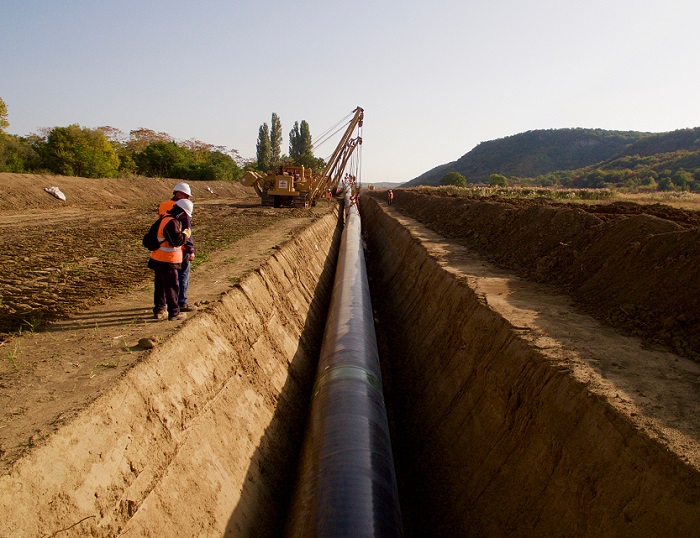Greece Expected to Nearly Quadruple Gas Export Capacity by 2025
(Reuters) — Greece is becoming a European gas corridor and can nearly quadruple its gas export capacity to neighboring countries in the coming years thanks to new infrastructure under development, Maria Rita Galli, the CEO of the country's gas grid operator DESFA said on Wednesday.
In the wake of the war in Ukraine, Greece has this year more than halved its imports of Russian gas, instead ramping up deliveries of LNG, mainly from the United States and Egypt, to its sole LNG facility at Revithoussa near Athens.
The terminal, which the government has called "indispensable", has also helped export gas to neighboring nations including Bulgaria, which was cut off from Russian supplies earlier this year after refusing to pay in rubles.
To further cut its reliance on Russian gas, Greece is pinning its hopes on building at least another two floating storage and regasification units (FSRUs) which could be operational by 2024. Earlier this year, it also launched a new gas pipeline carrying gas to Bulgaria.
"These create the conditions for Greece to increase nearly four times from now to 2025 its export capacity towards its neighboring countries," Galli said during the World LNG Summit in Athens, adding that Europe needs "flexible solutions and a flexible LNG market".
Security of supply is the biggest challenge Europe faces, she said, along with decarbonization.
Speaking before Galli, Prime Minister Kyriakos Mitsotakis said that Greece could have up to four new LNG terminals up and running in coming years.
He also said Europe needs to find a new energy "equilibrium" following gas price spikes earlier this year and that Russian gas cannot be eliminated without investment in new gas production.
The conservative premier — who was elected in 2019 pledging to move Greece away from coal before making a U-turn due to the energy crisis — also called for innovative solutions to cut carbon emissions.
"We need to be realistic that gas is going to be with us for a while," he said, adding that Europe had still not found a way to continue investing in gas supplies in a net-zero emission world.
Storing hydrogen could be part of the solution, he said. "What is missing is a commercial model which brings all these elements together."
Related News
Related News

- Keystone Oil Pipeline Resumes Operations After Temporary Shutdown
- Freeport LNG Plant Runs Near Zero Consumption for Fifth Day
- Biden Administration Buys Oil for Emergency Reserve Above Target Price
- Mexico Seizes Air Liquide's Hydrogen Plant at Pemex Refinery
- Enbridge to Invest $500 Million in Pipeline Assets, Including Expansion of 850-Mile Gray Oak Pipeline
- Evacuation Technologies to Reduce Methane Releases During Pigging
- Editor’s Notebook: Nord Stream’s $20 Billion Question
- Enbridge Receives Approval to Begin Service on Louisiana Venice Gas Pipeline Project
- Mexico Seizes Air Liquide's Hydrogen Plant at Pemex Refinery
- Russian LNG Unfazed By U.S. Sanctions





Comments